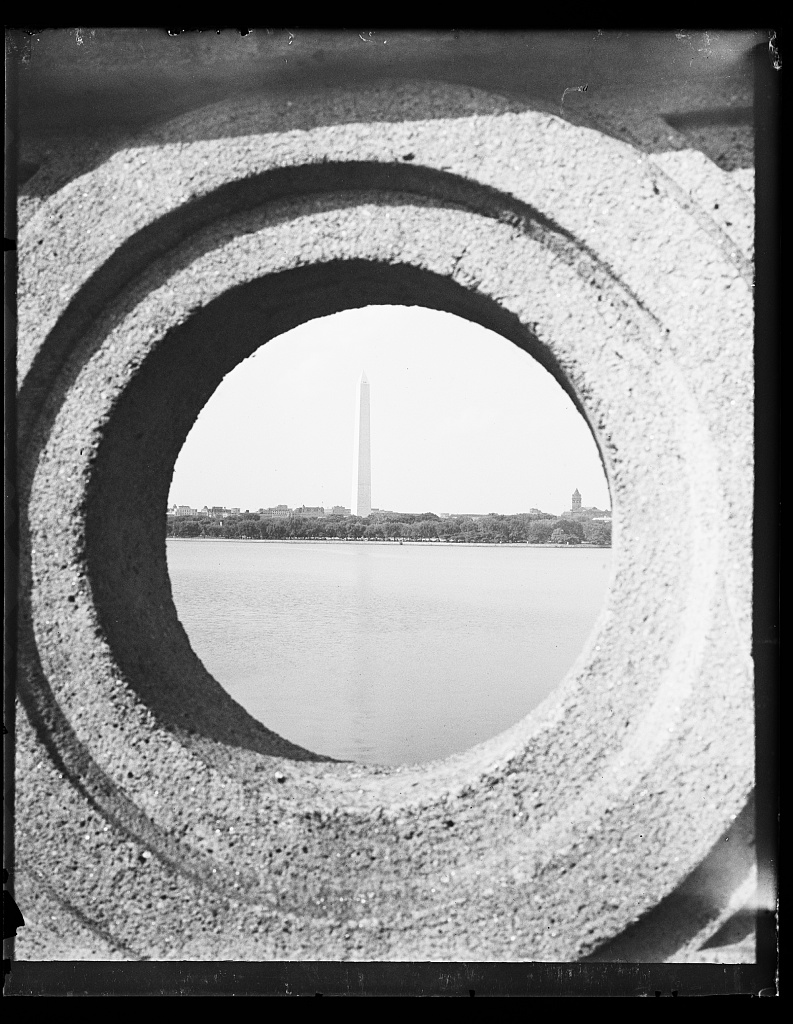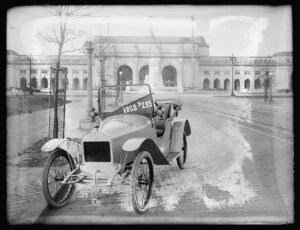Southern Legitimacy Statement: I am a grits, sweet tea, and collards enthusiast. I have a recipe for each that I make myself regularly.
*ya’ll need to read this essay..
Life, Legacy, Fractured Spines, and the Power of Now
April 13, 2008. I was two weeks removed from my 14th birthday, meandering about my hometown with a group of friends enjoying a temperate Spring afternoon, and engaging in lively debates about which burrito joint we were going to stop-by for dinner. Then the phone call came. “Eric, your mother needs to see you at the house as soon as possible.” I hastily made my way home, anxiously working through every conceivable scenario in my head as to why I was being urgently summoned back.
Nothing prepared me for what I’d learn upon entering my living room, which, unbeknownst to me, was filled with my closest friends and family huddled together in a disquieted manner.
“There’s no easy way to say this, so we’re just going to say it,” my closest family friend stated to me. “Your father suffered a major stroke earlier today while he was at work. The doctors worked as hard as they could to save him, but he passed away this afternoon.”
I am an incredibly fortunate person. I was cared for as a child. My parents had an imitable marriage, borne out of true and unconditional love for one another. The only thing that rivaled their love for each other was the ineffable devotion, support, and love they showed me as parents. I was happy and lived every day with a steadfast devotion to maintaining a bright, optimistic disposition. That outlook on life was upended and irreparably changed with those three sentences.
Several months after my father’s death, the global economy collapsed. The financial cushion that my mother and I relied upon in the months following my dad’s death evaporated seemingly instantaneously. I’ll never know how my mother managed to maintain her composure and will our family of two through a true “break glass in case of emergency” moment.
I tried to maintain a sense of normalcy, but it proved to be a Sisyphean task. It felt like every facet of my life that previously provided comfort and stability was eroding all at once. Everything reached a boiling point when I tried returning to school two weeks after my father died. The first interaction I had upon re-entering class was a punch from the school bully coupled with the words, “I bet your dad’s glad to be dead. That way he doesn’t have to live with a loser like you anymore.”
This moment was an impetus that recalibrated my id—an unforeseen and abrupt moment of heartlessness that will forever be etched in my mind. That was the moment, for whatever reason, that catalyzed my grief and initial acceptance that my father—whom I loved more than I could describe in a lifetime—was dead. Our plans to travel the country together, see Tom Waits perform live, and go to more Dodgers games, were no more. Like countless other children across the world, I altered my mind, worldview, and expectations for life following the sudden loss of a beloved parent.
What followed next was a year-long period of numbness. I switched to homeschooling, isolated myself from friends, and lied to everyone about how I was feeling. My assurances to others that I was processing my grief and maintaining a positive outlook on life were falsities.
The most poignant thing that crystallized in my mind during this period of unprecedented raw emotion was my sudden, inexplicable obsession with the concept of legacy. I came to define legacy as the life-long composition of one’s professional achievements combined with the strength and indelibility of the value system one instills upon their family and loved ones. I also believed that one’s legacy was characterized by the perception of others rather than the perception of oneself.
As I continued to grow up and toil with the trials and tribulations of adult life, I would do so while standing on the shoulders of a giant. My father was successful by any definition. He was intelligent, self-made, compassionate, quietly confident, and he somehow managed to be the best possible professional, father, and role model one could be — all at once. Though my father left this world prematurely and abruptly, he still achieved more than most and will be remembered by many far beyond his years. While he never put any pressure on me to pursue a specific career or be a certain version of myself, I did apply that pressure to my life through grief and processing his passing.
I struggled to believe I could leave the type of legacy my father did. I was also relentlessly aware of how I was afforded opportunities and luxuries he could have only dreamed of when he was my age—there were zero excuses for me if I left less of a mark on this world than he did. I believed it was incumbent upon me to meet the standard of excellence my father held himself to throughout his daily life. Anything short of that would tarnish his legacy and undermine the countless hours of work he and my mother devoted to providing me with a happy and comfortable upbringing.
I agonized over this visceral feeling for the remainder of my childhood and early adulthood without expressing it to anyone—including my mother and closest friends. It was a self-inflicted pressure that became the guiding light and driving force behind every decision I made—no matter how big or small. My father achieved success in the field of law, but he’d always expressed a keen interest in politics. Therefore, knowing I couldn’t carve out a law career of similar stature and prestige as my father, I aggressively pursued a life in politics and public service.
I entered college and majored in communications and political science, and I began working to re-elect the local congressman who represented my college town. Following a campaign victory, I moved to Washington, D.C. and became a Congressional staffer working on Capitol Hill. I overworked myself as a point of pride. I lost hair and suffered frequent nosebleeds and vomiting due to stress and lack of sleep. I would occasionally sleep in my car to make the impossible logistics of my schedule work. I strived to cultivate a robust social life in addition to a successful career. At one point, I fell off a two-story building and fractured my spine but returned to work seven days later, against the demands of my doctor, because I was afraid of falling behind. I offered every conceivable aspect of my mental and physical health as a sacrifice to the universe in exchange for developing a legacy I could be proud of.
Fifteen years removed from my father’s death, I have attained most of the personal and professional achievements I set for myself at this period of my life. However, one year ago, I made a sobering realization on my 28th birthday: I am not happy.
It wasn’t a complete surprise to me. I made a conscious decision to sacrifice personal happiness when it was at odds with my unwavering commitment to building my ideal legacy. What surprised me was how unfulfilled I felt. That was supposed to be part of the “deal” I struck with myself. Sacrificing my internal happiness and well-being would bolster my personal pride and fulfillment as I worked to solidify my legacy.
Many could have predicted this result based on the complexion of my relationship with myself, but I did not. I spent a year trying to push the envelope of what I could achieve in my personal and professional life even further, but it yielded no positive results. That’s when, for the first time in fifteen years, I revisited my definition of legacy. I realized that the governing principle to my life, which was conceived by a recently traumatized, exceedingly depressed 14-year-old, was likely missing some key variables and had overlooked some valuable information. I pondered the concept of legacy again in a substantive manner for the first time in my adult life.
What I realized is this: I was focused entirely on the end credits and not at all on the story itself. I also realized that I almost never sift through or take in the credits when I finish a book, movie, or television show. Why would I expect others to do so for me? Why would I even care? I began to realize how little I knew about my great-grandparents, their great-grandparents, and generations beyond. If someone who is as obsessed with the concept of legacy as I am doesn’t take the time to study the legacies of those of whom they are a direct descendant, then why would I expect my future descendants to do anything differently?
The fact is, we are all wrapped up in our own world. I, and countless others, spend so much time worrying about how we’ll be remembered when we aren’t alive that we discount the need to live life to its fullest while we have it. Delayed gratification doesn’t work if you’re not around to experience it.
I also realized during this period of introspection that my definition of legacy might be personally toxic —but it was not unique. I believe my father put much of the same pressure on himself, and just like me, told no one else about it. That was his cross to bear and his perennial internal power struggle. He wore stress well and never let it impact his interactions with others. It shouldn’t surprise me then that millions of Americans are likely grappling with their own version of this same existential crisis. One could go so far as to say this thinking pattern is normalized and legitimized throughout our society.
Today, I posit that we should consider the concept of our legacy through much smaller units of measurement. The legacy of a day is far less daunting and overwhelming to consider than the legacy of a lifetime. It’s also more immediately actionable. One has greater agency and influence over a 24-hour period than a lifetime.
Success also begets additional success. By setting one’s sights on living life fully day-by-day, then those individual legacies one leaves each day will eventually compound and mature into an enriching, successful, and fulfilling life of achievements. Yesterday is gone, tomorrow isn’t real, and all we have is right now.
I’ve taken steps to recalibrate my mind and reconsider what a legacy is and how it should be measured, and I’m better off for it. I no longer feel guilt or shame when I take steps to live a well-rounded, fruitful daily existence. I allow myself to work hard and strive to be the best possible person I can be, but now I do it solely for myself and not for anyone or anything else.
Existing in contemporary American culture is a slog. We all feel pressure to constantly compare ourselves to the personal and professional achievements of those around us, or to those who are anointed to positions of power or significant acclaim in our society. There will always be someone more accomplished in something we want to make the cornerstone of our legacy, just as there will always be someone who is less accomplished in the same thing.
I regret nothing about how I handled the intervening months following my dad’s death up to the moment I realized I needed to reshape my understanding of what legacy truly means. All of the pain and torment was real, it was genuine and helped lead to the new perspective I’ve gained on life. I now truly understand that the most important legacy I can leave is the legacy of the moment. Cherish each moment you get, and nurture it as if it will be your last. We have no control over how we will be remembered, and that’s a good thing. Let it liberate you. Let it be the excuse you need to choose happiness and true fulfillment in each day you’re granted on Earth. Doing so will lead you to the life and legacy you are truly meant to bear.







